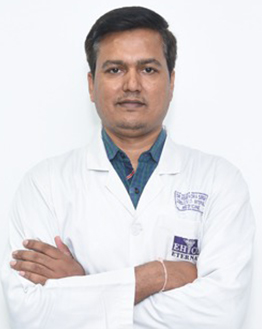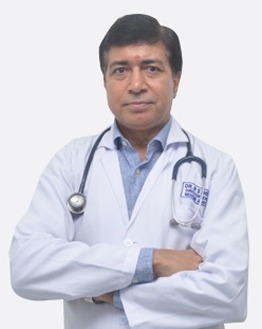Hypertension, commonly referred to as high blood pressure, is a very common condition marked by the excessive force of blood against the walls of the arteries, which eventually damages them and puts you at a higher risk of stroke. Hypertension is one of the major risk factors associated with various cardiovascular diseases, which makes it very important to manage the condition effectively.
Our blood pressure is measured in terms of both, the amount of blood pumped by your heart, as well as the amount of resistance to the blood flowing into arteries. Blood pressure readings measure both systolic and diastolic pressure. The former is written on the top and measures the pressure of blood in the arteries when your heartbeats. The latter is written at the bottom and represents the pressure in your arteries, between your heartbeats.
Causes
Primary hypertension does not usually have a definite cause and it usually develops gradually, over many years.
Secondary hypertension can be a result of the following:
- Obstructive sleep apnea
- Underlying renal ailments
- Tumours in the adrenal gland
- Thyroid problems
- Congenital defects in the blood vessels
- Certain medicines light birth control, decongestants and some pain relievers
- Drug abuse
Risk factors
You are at a higher risk of developing hypertension if:
- You are 65 years of age or above
- You have a family history of diabetes
- You are overweight or obese
- You are physically inactive
- You smoke or use tobacco in any other form
- You take excessive salt in your diet
- You do not take enough potassium
- You have some chronic underlying conditions including renal ailments, diabetes and sleep apnea
- You take too much stress
- You drink alcohol excessively
Symptoms
In the majority of the cases, patients suffering from hypertension do not experience any symptoms. Others may experience symptoms like
- Chronic headache
- Breathlessness
- Nosebleed
Complications
Hypertension, if not managed properly, can severely damage your blood vessels, as well as various other organs in your body. Some of the major complications associated with hypertension include:
- Increased risk of heart attack and stroke
- Aneurysms
- Heart failure
- Weakening or narrowing of the renal blood vessels
- Thickening or tearing of the ophthalmic blood vessels
- Metabolic syndromes like high triglycerides, decrease in HDL cholesterol, and spiked insulin levels
- Problems with memory retention, event dementia
Diagnosis
Blood pressure is measured with the help of special equipment known as a sphygmomanometer. The measurement is classified into different categories:
- If the reading is 120/80 mm Hg, your blood pressure is normal
- If only the systolic pressure is high, i.e. greater than 120 mm Hg, and the diastolic pressure is normal, the patient is said to have elevated blood pressure
- If the systolic pressure ranges between 130 to 139 mm Hg and the diastolic pressure is between 80 to 89 mm Hg, the patient is said to have stage 1 hypertension.
- If this is systolic pressure is 140 mn Hg, or above, and the diastolic pressure is above 90 mm Hg, the patient is said to have stage two hypertension
- If the pressure is above 180/120 mm Hg, the patient is said to have a hypertensive crisis.
Treatment
Hypertension can be effectively managed with healthy lifestyle changes and dietary modifications. Medication may also be recommended, depending upon the specific requirements of the patient.
Why Eternal Hospital?
At Eternal Hospital, we have a highly qualified and dedicated team of experts who are always committed to providing the latest and most advanced medical care to all our patients. Being a trusted name in healthcare, we act compassionately while ensuring confidentiality to those who need it. We have set high standards in patient-centric premium care along with outstanding patient safety and exceptional maintenance in a timely manner. We adhere to the use of up to the minute innovations to offer state-of-the-art treatments to our patients with unparalleled results.





